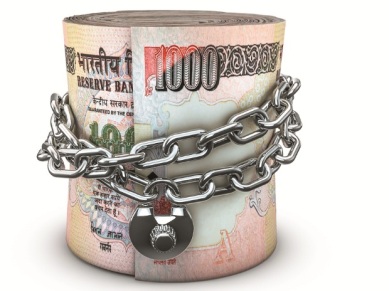
The BJP government has made a surgical strike on black money. With the new
demonetization policy the liquidity side of the indian market has been affected. About
nearly 86% of currency value in circulation was withdrawn without replacing bulk of it.
As a result of the withdrawal of Rs 500 and Rs 1000 notes, a huge gap in the currency
composition was created as after Rs 100, Rs 2000 was the only denomination.
The highest denomination note ever printed by the Reserve Bank of India was the Rs
10,000 note in 1938 and again in 1954 and they were demonetized in 1946 and 1978.
Demonetization may be creating some trouble for the common people at this particular
time but in the long run we think it will be beneficial for the country’s growth.
With this new policy people have started going cashless. Paytm and other similar
apps are on the rise. Digital India has actually started working with people using
such apps. It has reduced the risk and cost of cash handling as soft money is
safer than hard money. The banking system will also improve rapidly with this.
The policy will also reduce the government’s liability. Since the notes issued by
the government is a liability of the government, this demonetization will reduce
this liability. Thus the government will not be liable to the people who have not
disclosed their income. We expect that approximately Rs 5 lakh crore may come
to the government in the form of extinguished RBI liability, taxes and penalties.
The Demand for gold will increase as more and more people will start shifting in
gold as an alternative to cash deposit in the bank. It will give rise to deposits
through gold monetization scheme. So India will rely less on gold import as gold
deposited through the scheme will be used to meet India’s gold demand. This will
help in strengthening of Indian economy.
It is expected that in the long run the tax and interest rates will go down. The tax
avoidance is going to be reduced. There will be scrutiny in the real estate and
gold sector. The IT department has been already informed of the excess cash
money deposited in the bank accounts within this period. The higher income tax
collections arising from better compliance would offer scope to reduce rates over
the long term.
The liquidity shortage caused by demonetisation will be negative across sectors
with high level of cash transactions. Real estate, jewellery, retailing, restaurants,
logistics, cement and some segments in retail/SME lending space will be facing
short term instability.
We expect a drop in the real estate prices. This will also help upper lower and
lower middle class people to buy houses within their budget.
It is expected that there will be long term growth in the country. It is the right time to
invest in Mutual Funds to ensure high long term returns. Demonetization as a cleaning
exercise may produce several good things in the economy. It will create some
unavoidable tension among the people for a certain period of time but will be fruitful for
the future. Overall economic activites will be dampened in the short term.
The unmeasurable benefits of having more transparency and reduced volume of black
money activities can be pointed as long term benefits.
Thus this short term pain will be beneficial for the long term health of the economy

